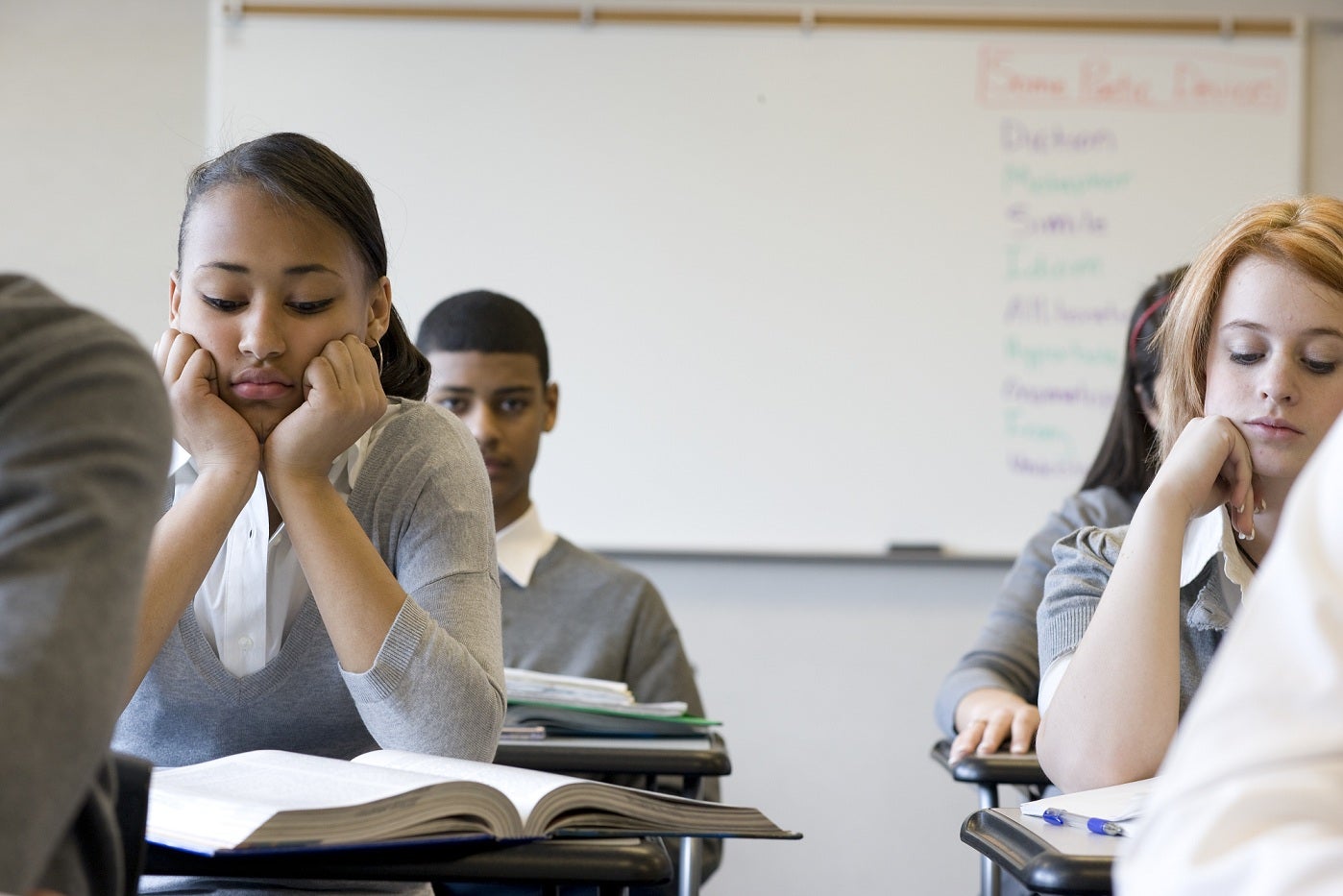Teachers ‘don’t have the training to cope with disruptive pupils’
One in four surveyed said they weren’t equipped to deal with discipline issues

Your support helps us to tell the story
From reproductive rights to climate change to Big Tech, The Independent is on the ground when the story is developing. Whether it's investigating the financials of Elon Musk's pro-Trump PAC or producing our latest documentary, 'The A Word', which shines a light on the American women fighting for reproductive rights, we know how important it is to parse out the facts from the messaging.
At such a critical moment in US history, we need reporters on the ground. Your donation allows us to keep sending journalists to speak to both sides of the story.
The Independent is trusted by Americans across the entire political spectrum. And unlike many other quality news outlets, we choose not to lock Americans out of our reporting and analysis with paywalls. We believe quality journalism should be available to everyone, paid for by those who can afford it.
Your support makes all the difference.Inadequate training in how to tackle disruptive behaviour has left many teachers struggling to cope with rowdy pupils, a survey has found.
One in four teachers say they have not been sufficiently schooled in how to deal with children causing problems in their lessons, according to the poll out today.
The survey of 774 teachers commissioned by the Teacher Support Network Group (TSNG) from YouGov, reveals that 24 per cent believe their initial teacher training courses had either prepared them “not very well” or “not at all well” to cope with real-life issues.
One in four also said that their training did not equip them for managing or disciplining disruptive pupils. The findings follow evidence that four out of 10 teachers are quitting within five years of completing their training.
In a speech earlier this year, chief schools inspector Sir Michael Wilshaw said the main reason teachers quit was the lack of discipline in the classroom. He echoed the teachers’ claims that they did not feel that they had been adequately trained. “There is no such thing as a bad newly qualified teacher – just one that is badly trained,” he added.
The poll also revealed that 42 per cent said they had not been able to take advantage of all the additional training they believed they needed – more than half of these (51 per cent) blamed cuts in spending.
Julian Stanley, chief executive of the TSNG, added: “If our teachers are not well trained and supported, is it any wonder that 40 per cent are quitting the profession in their first five years?
“Our survey suggests that many existing training programmes do not adequately prepare teachers for some of the key challenges, such as managing poor student behaviour and handling the pressure of increasing workloads.”
A health and social care teacher from Yorkshire, who wished to remain anonymous, said his PGCE course “no way prepared me”.
“When you’re on your placement you’re protected in a lot of ways,” he added. “It’s not a realistic experience of what it’s like to be a full-time teacher.
“The mentors don’t give you full responsibility and when I got my first job it was a massive shock to the system. My first year was make-or-break and luckily I did get through it.” The TSNG, which offers a 24/7 support line to help teachers overcome any problems, wants to see a reform of teacher training – and for school budgets for staff training to be ring-fenced against cuts
“Investing in quality, regular training and mentoring schemes will help retain more staff and allow them to develop into teachers who are well equipped to maintain and raise education standards,” Mr Stanley added.
A spokeswoman for the Department for Education said: “We have taken decisive action to put power back in the hands of teachers so they can tackle poor behaviour and discipline. All newly qualified teachers are asked about the quality of training and 83 per cent say it was good or very good at preparing them.”sons on the Second World War.
Join our commenting forum
Join thought-provoking conversations, follow other Independent readers and see their replies
Comments